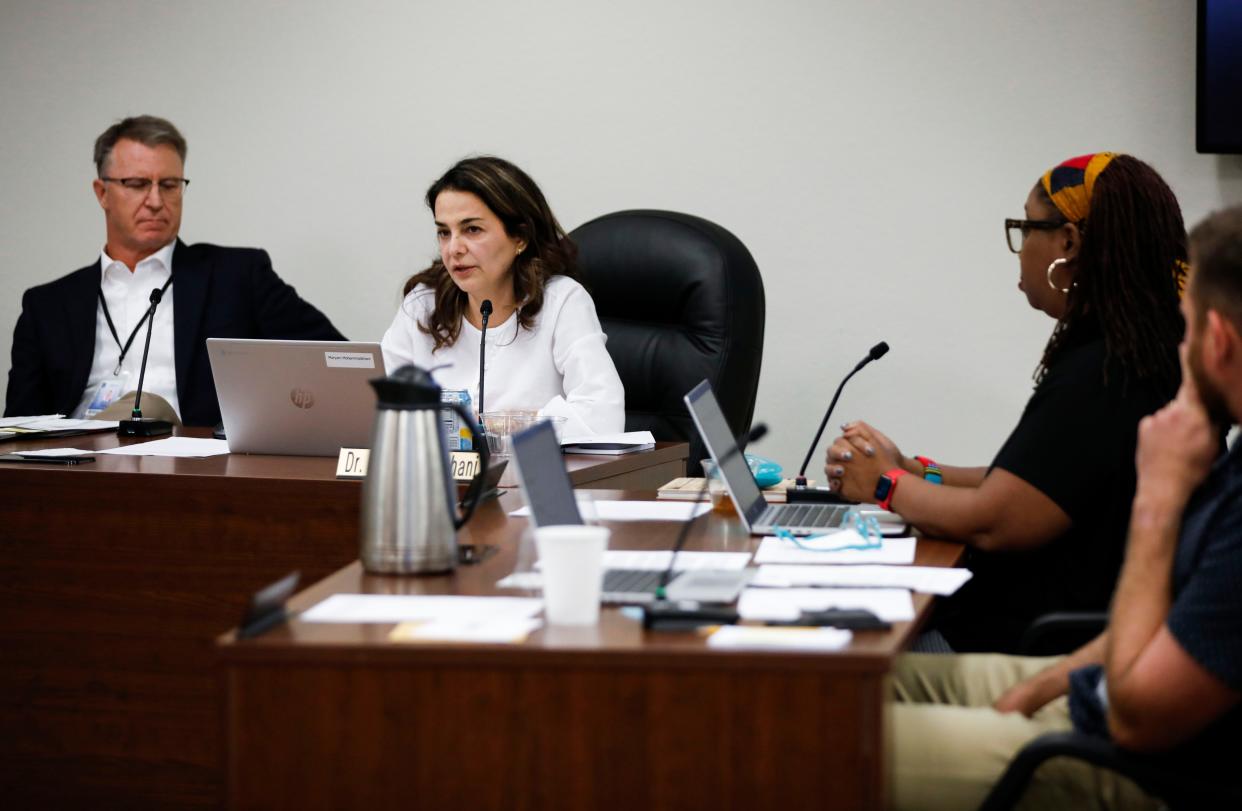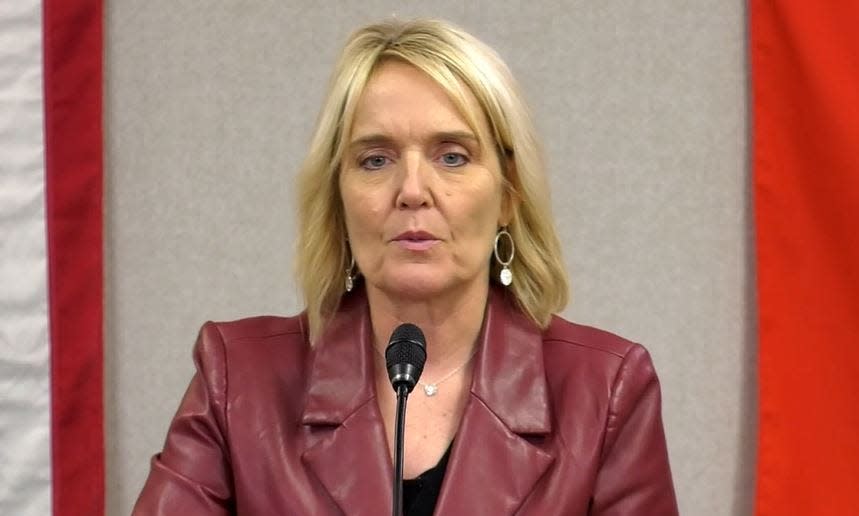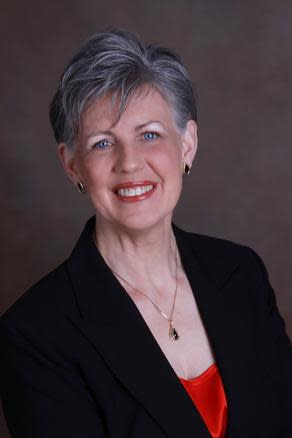SPS board member supports bill stripping state board of authority to accredit schools

The Springfield school board will be asked by one of its own to support a legislative proposal to strip the Missouri Board of Education of the authority to use student test scores, or any other measure, to accredit schools.
The request will come Jan. 23 from board member Maryam Mohammadkhani, who is running for reelection, and outlined her support for Senate Bill 814 at the end of Tuesday's board meeting. It is called the "Education Freedom Act."
The following day, the bill proposed by state Sen. Jill Carter, a Republican representing Jasper and Newton counties, received its first hearing by the Senate Education and Workforce Development Committee.
If approved, the bill will overhaul how students are tested, how achievement results are shared, and how districts are accredited. It will significantly reduce the duties and powers of the state board.
Under the proposal, the state board will only be allowed to use student test results to satisfy the federal law that mandates testing in certain grades and subjects on an annual basis.
"The state board shall not use assessment results to classify school districts," Mohammadkhani said, explaining that is the power to "accredit or not accredit a school district."
The proposal calls for districts to create, buy or adopt an interim assessment that measures students' knowledge at the beginning of each school year and how much they progress annually. Many districts, including Springfield, have internal testing measures in place.
"You get to pick whether you want it to be on a computer or do you want your elementary kids to have a paper and pencil test," she said.
Mohammadkahni said the bill aims to reduce administrative bureaucracy and give districts relief from "burdensome" testing rules.
"This is a way for us to have more a say in how we teach so we no longer teach to a test. The test becomes a measure of the excellence that we teach in our schools as opposed to constantly chasing the test."
Under the proposal, the state Department of Elementary and Secondary Education would not produce an "accountability report card" for each school and district. Instead, districts will report certain results to DESE, patrons, and the media.
"It is making it more of a local control shift in power," she said.
The proposal repeals the authority of the state board to accredit districts. If approved, districts would have to seek accreditation through a national agency.
"This would then allow us, any district, to decide where they want to obtain accreditation," she said.
Mohammadkhani said she will make a motion at the Jan. 23 meeting for the board to direct its lobbyist to support this proposal as currently written.
More: Open enrollment in Missouri public schools takes center stage in House education committee
Senate committee discussed bill this week
At the hearing Wednesday, state Sen. Carter said the third-party accreditation option she seeks for districts is already in place for private schools and higher education.
She said 28 states and Washington D.C. offer the option for public school districts. She argued internal assessments, already used in many districts, are more helpful to classrooms.
"Schools use internal assessments continually for informed teaching practices and for their own accountability. Yet, none of these tests are allowed to be forward-facing as part of their (state) accountability," Carter told the committee. "This is where the true concrete data lies on each student. Schools should be able to use these tests or performance indicators for accountability. It shows real time what is happening in the classroom."
Gail Griswold, president of the Camdenton school board, testified in support of the proposal. She is also a lobbyist with ArmorVine, a group that promotes Christian principles of freedom and liberty.
"Over the last few legislative sessions, I've watched this committee vote to pass sections in law that have left the door wide open for the Missouri Department of Elementary and Secondary Education, DESE, and the Missouri State Board of Education to run wild with their rulemaking authority under the 'promulgation of the rules' language in practically every education bill that this committee passes," she said.
She and others argued that while Missouri has tied results of state-mandated tests to the accreditation of districts, that is not required by the federal government.
"What that means is that the state of Missouri is doing more to shackle the public schools than even the federal government. Let that sink in," she said.
Griswold said the results of state-mandated exams are not provided to schools and the public "until the following (school) year" and a change this year — intended to give districts credit for making significant progress even if they fell short of a state benchmark — was too confusing.

Margie Vandeven, Missouri's soon-to-retire commissioner of education, testified to provide information about the bill.
"While I understand something called the 'Education Freedom Act" could sound compelling to many, I would like to remind you of a statement that I have shared before: Accountability without autonomy is compliance, and autonomy without accountability is chaos, neither of which is favorable and we at the department work to meet this delicate balance," Vandeven said of the ever-evolving state accountability system called the Missouri School Improvement Program.
She said the goal of MSIP, a mix of responsibility and autonomy, is to hold "systems accountability for student results delivered and not for the explicit methods used to attain them."
Vandeven said under the proposal, districts would be allowed to pick what tests they use, what is assessed, what to report, and what national accreditation they seek. She said it "does not allow for an apples-to-apples comparison."
"While this may be a welcome relief for some, the unintended consequence could be duplication of cost and effort with the end result being lack of clarify for parents who are wanting to find the best option for their child when they're moving or if they are trying to exercise a choice option and for the average taxpayer and policymaker wanting to understand which schools are successful," she said.
More: MO lawmakers to hear bill indefinitely extending ban on gender affirming care for minors
Vandeven said DESE remains committed to exploring options to redesign its statement assessment system.
"We are all very clear that there is a pretty serious concern around standardized testing," she said. "This is not in Missouri, that is across the nation."
She said efforts are in place right now to improve the existing system and more input is sought.
"Think about solutions before you abandon any kind of standard data reporting, reporting back to parents," she said. "It will create a lot of confusion if we don't have something that is standardized in place."

Mary Byrne, a member of the Heartland Institute, a conservative and libertarian public policy think tank, has repeatedly spoken at Springfield school board meetings. She testified in support of the proposal.
She argued the program that established Missouri's testing system decades ago was backed by an "outsider" and the groups and leaders he was associated with wanted to create a one-size-fits-all system for educating children.
"Missouri was a brick in the wall towards the building of not just a national system of education but a node toward the U.N. having significant influence down to the very classrooms in the state of Missouri," she said.
Anthony Rossetti, superintendent of the Webb City district, has been in public education for 29 years and supports the proposal. He said the current testing and accountability system, and the way results are calculated, are difficult to communicate to parents and taxpayers.

He said the framework in place fails to "do a good job of accurately measuring what a school does" and the benchmarks and emphasis is revised, on average, every five years.
"We have to spend enormous amounts of manpower trying to figure out what our next steps are going to be to improve student achievement and that is what we all want, better results," said Rosetti, who is stepping down this summer. "I'm not sure that we've, in the 30 years that we've had MSIP, that we've got what we wanted."
Claudette Riley covers education for the News-Leader. Email tips and story ideas to criley@news-leader.com.
This article originally appeared on Springfield News-Leader: SPS board member supports bill to weaken authority of Missouri board

